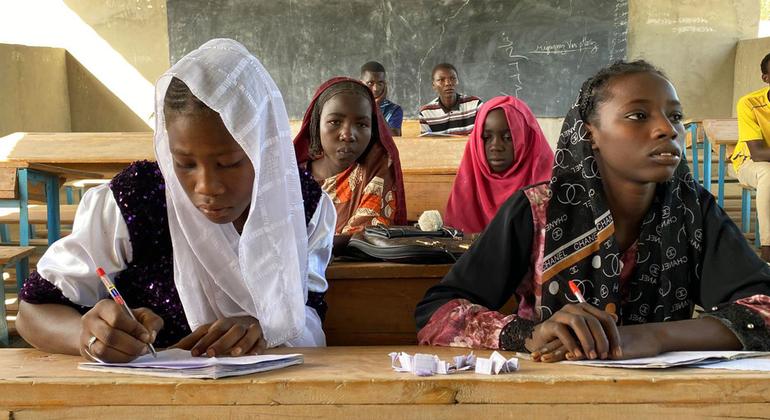António Guterres, the Secretary-General of the United Nations, recently participated in a Special Event on Transforming Education as part of the ongoing High-Level Political Forum (HLPF) and in preparation for the upcoming Summit of the Future in September. The event served as a call to action, with Mr. Guterres urging all countries to prioritize the establishment of genuine learning environments that offer educational opportunities from childhood through adulthood.
During the event, Mr. Guterres emphasized the importance of not shortchanging education, stating that the world cannot afford to neglect this critical aspect of human development. He highlighted the pressing global challenges facing education, including the projected 84 million children who are at risk of being left out of school by 2030 if transformative measures are not implemented.
Sustainable Development Goal 4 (SDG4), which aims to ensure inclusive and equitable quality education for all and promote lifelong learning opportunities, is in jeopardy of not being achieved unless urgent action is taken. Currently, only a fraction of countries are on track to meet the SDG4 target of universal access to quality education. Mr. Guterres also pointed out that completion rates at the secondary level are increasing too slowly, learners lack the necessary skills for success in a rapidly changing world, and early childhood and adult learning are often overlooked.
The Secretary-General highlighted the alarming statistic that approximately 70% of children in sub-Saharan Africa are unable to read a basic text by the age of 10, underscoring the urgent need for improved education outcomes in the region. Financial constraints pose a significant roadblock to providing quality education, with UNESCO estimating that developing nations would need to invest $100 billion annually to achieve SDG4. This amount increases by 50% when factoring in the costs of digital transformation in education.
Mr. Guterres also raised concerns about the prioritization of debt servicing over investments in education and health in many countries, noting that this trend is detrimental to long-term sustainable development. While over 140 countries pledged to address the education crisis at the Transforming Education Summit in 2022, progress has been slow and uneven, necessitating a more concerted effort to drive meaningful change.
President of the General Assembly, Dennis Francis, echoed Mr. Guterres’ sentiments on the need for transformative education policies. Drawing from his experiences in South Sudan, Mr. Francis highlighted the dire poverty of education in the region, where a significant portion of eligible children are unable to access schooling. He also emphasized the importance of ensuring quality education for all, particularly in conflict-affected areas such as Afghanistan, Ukraine, and Gaza, where access to education is severely restricted due to ongoing violence and instability.
In order to address these challenges, Mr. Francis stressed the importance of fostering inclusive, equitable, and lifelong learning opportunities that empower individuals to thrive in a rapidly changing world. He emphasized the need for a holistic approach to education that combines access with quality, ensuring that every individual has the opportunity to reach their full potential regardless of their background or circumstances.
Moving forward, both Mr. Guterres and Mr. Francis called for increased global cooperation and commitment to transforming education systems to meet the needs of all learners. They underscored the urgency of the situation and urged world leaders to prioritize education as a fundamental human right and a key driver of sustainable development. Only through collective action and investment in education can we hope to build a more equitable and prosperous future for all.









